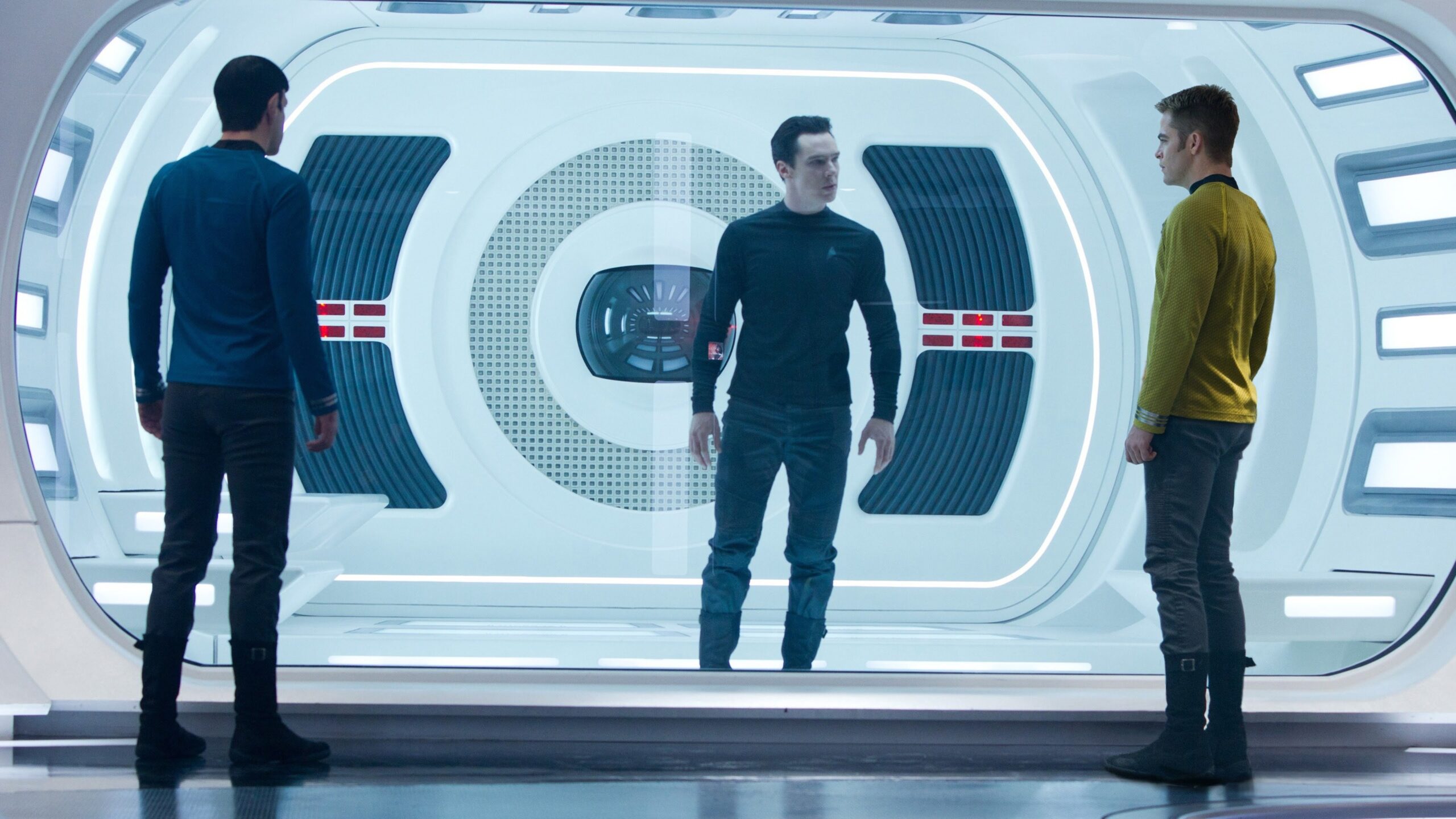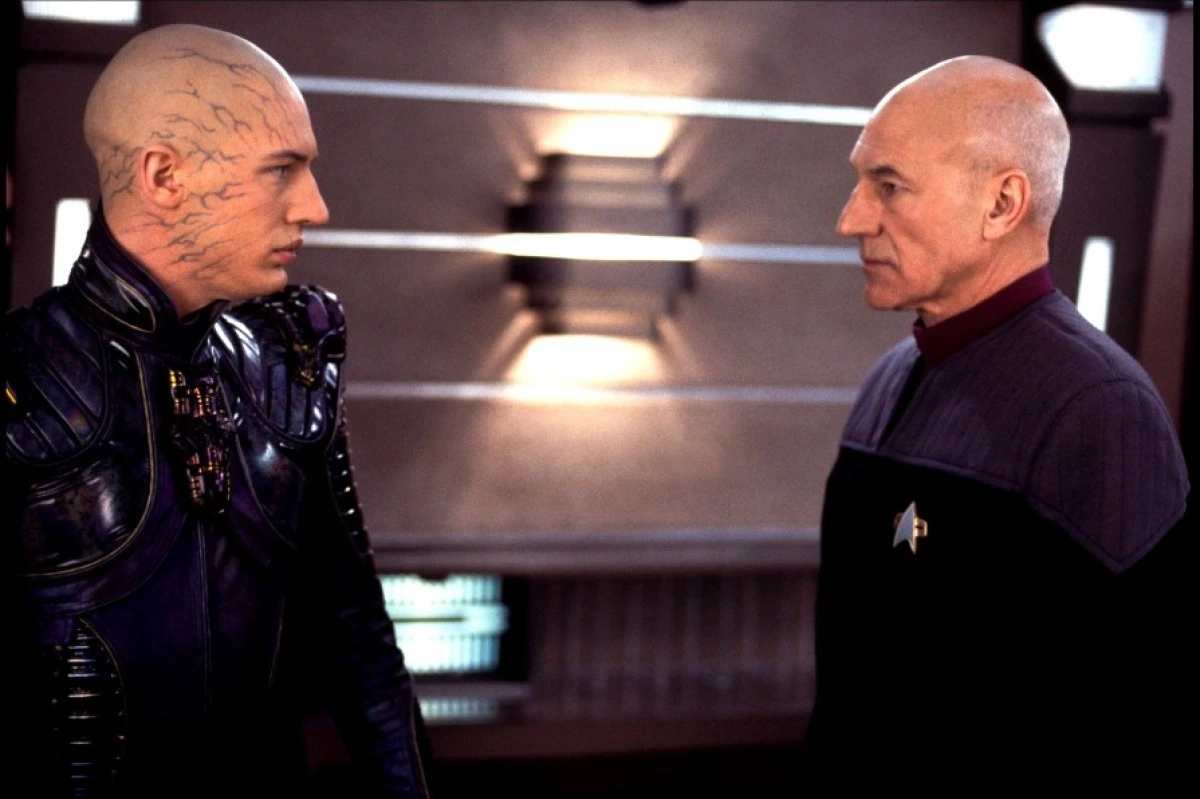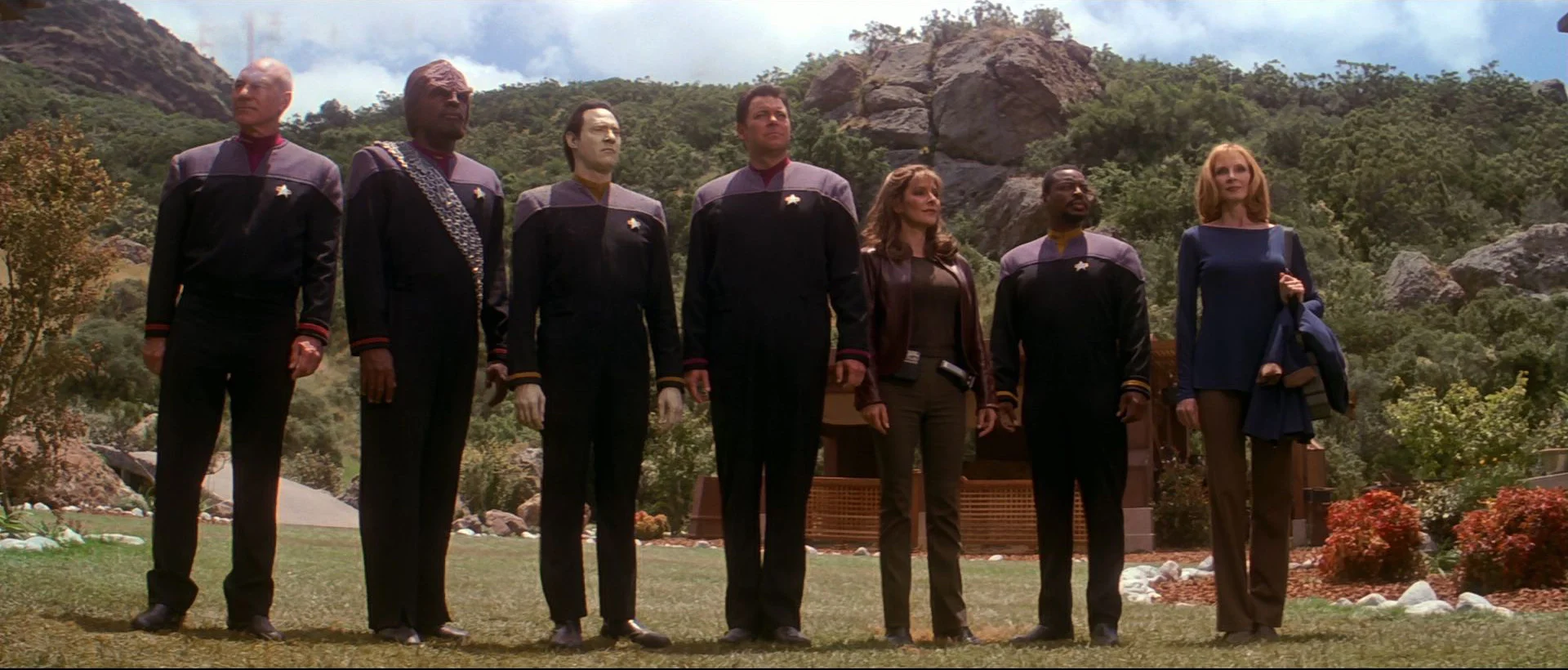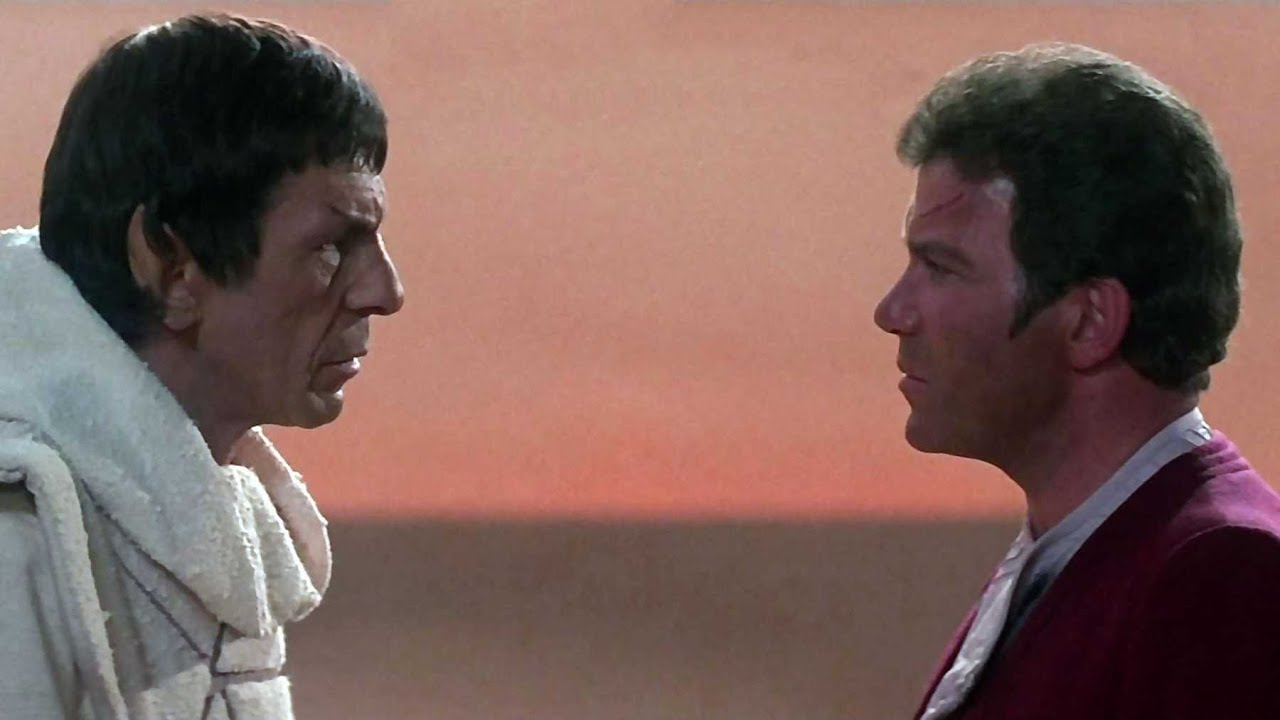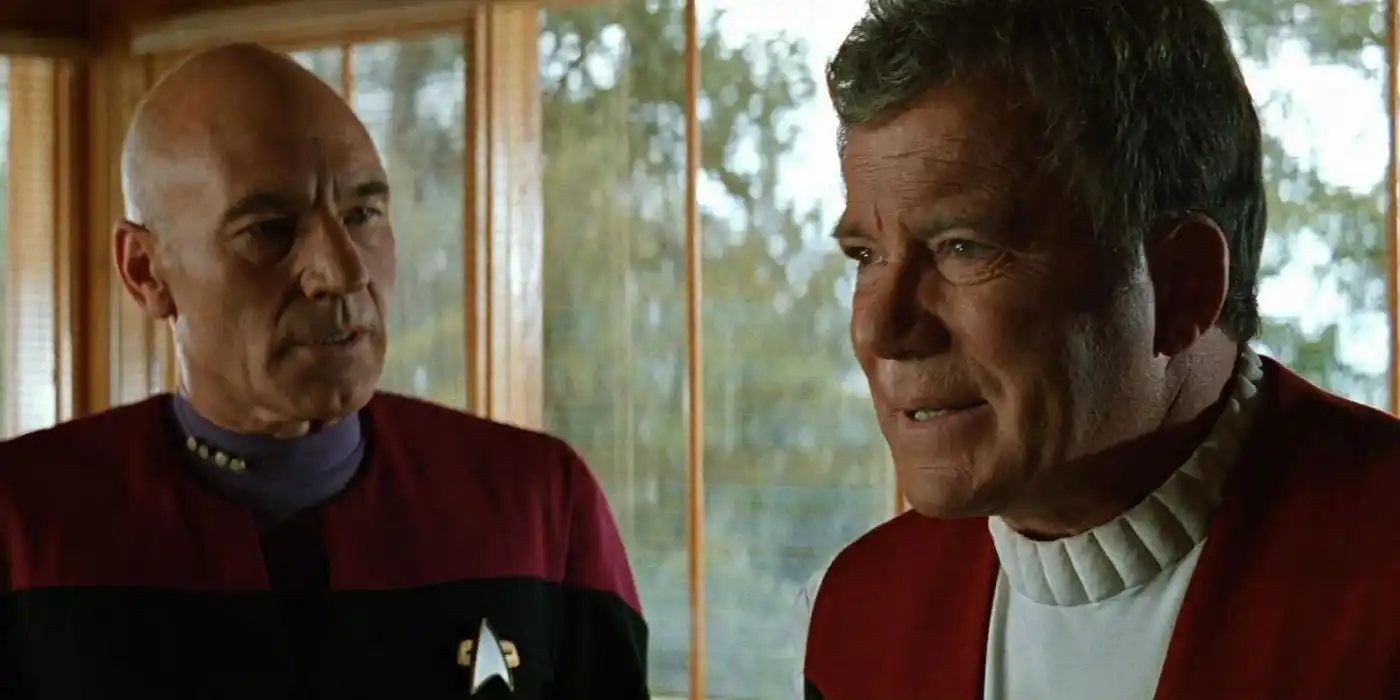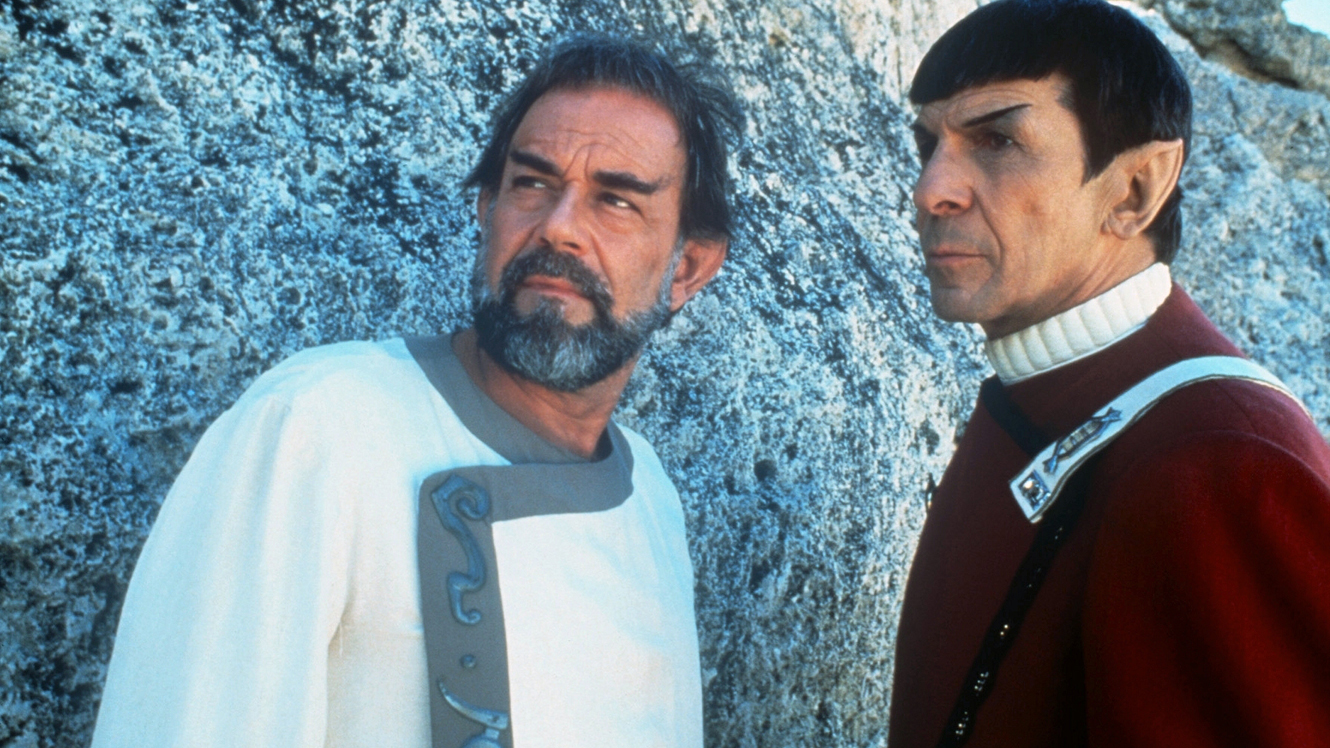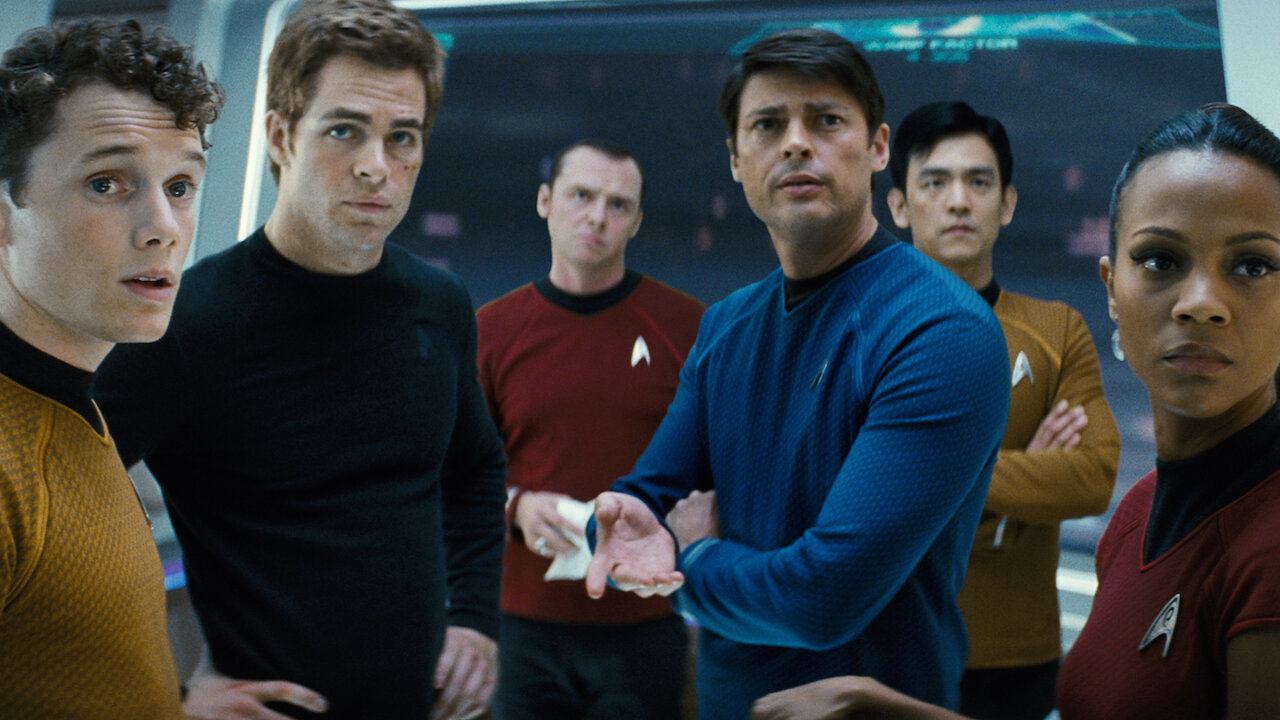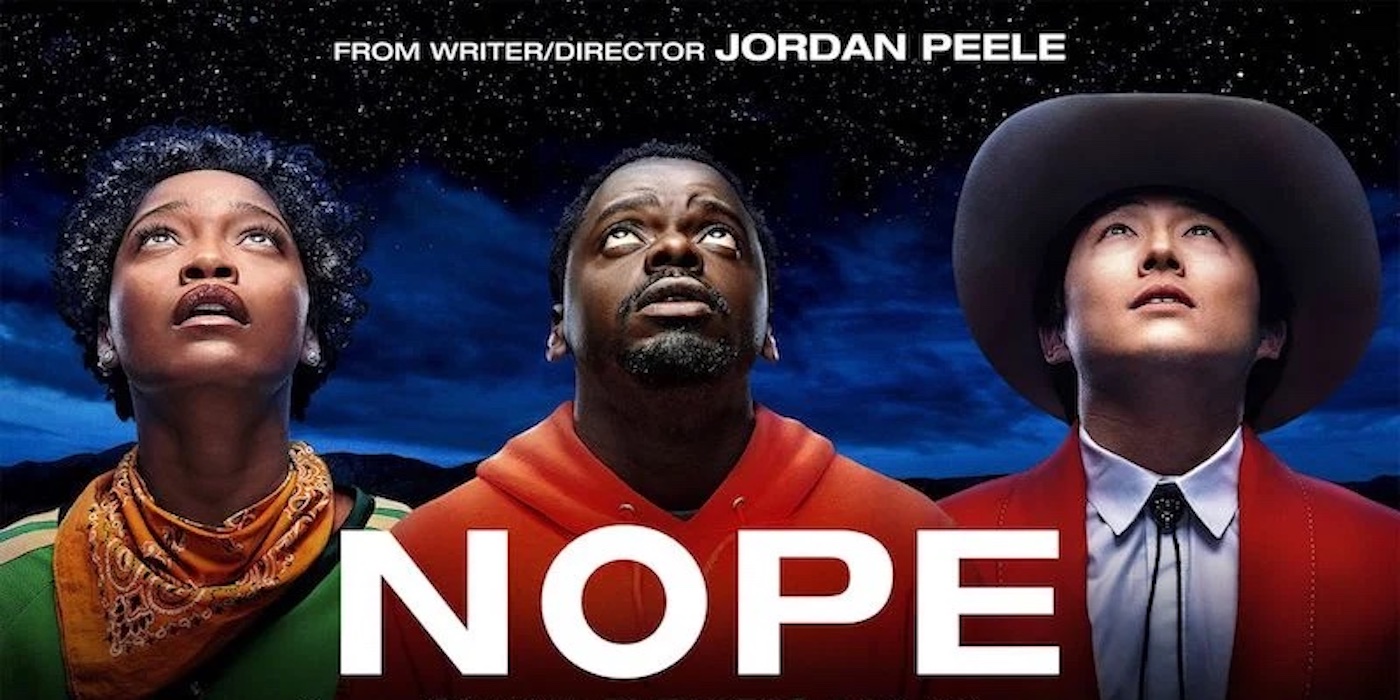Every Single ‘Star Trek’ Movie Ranked – Part One
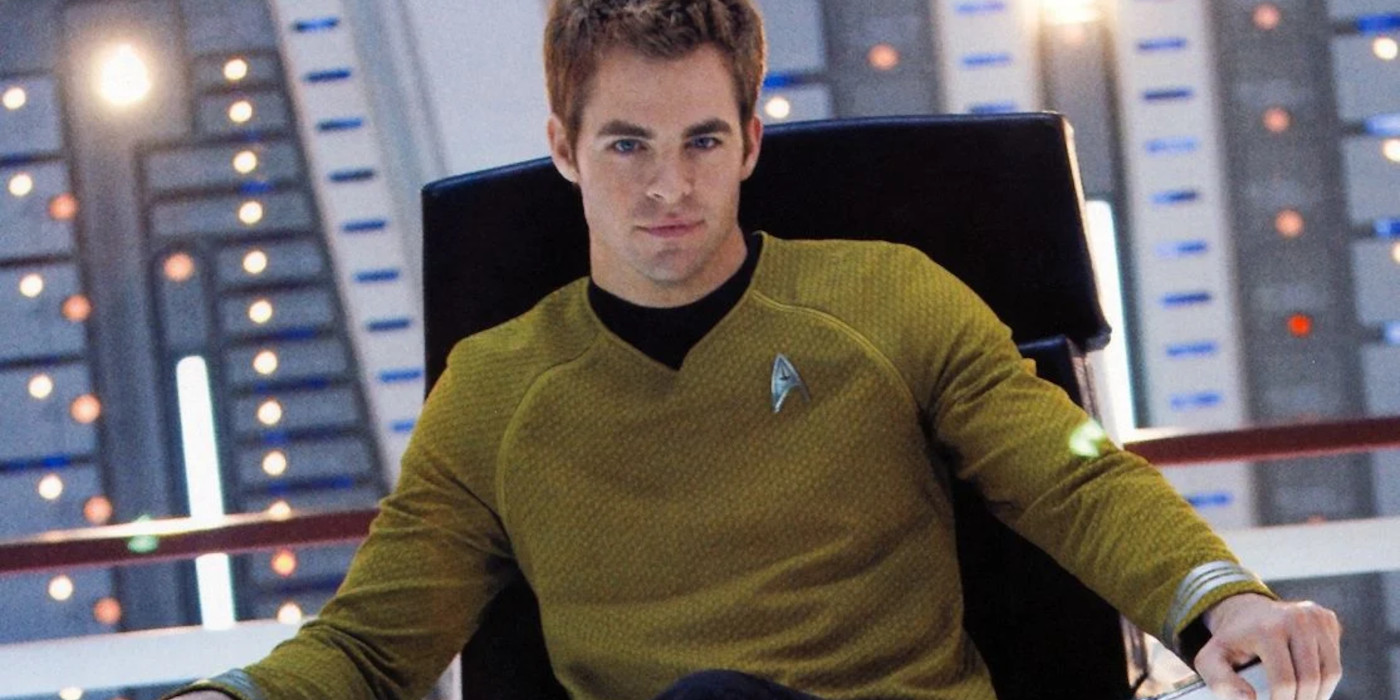
Star Trek movies are a hallmark of the franchise. Some of them are groundbreaking. Some of them are just broken. Let’s rank them, shall we?
There are times of great need when Star Trek leaps from the small screen to the big one. Whether it’s because shows are canceled or because shows are so popular they necessitate more, Star Trek movies are inevitable.
It’s been a long while since the last Star Trek film, largely because there’s been so much Star Trek television. Since 2017, Star Trek: Discovery has been keeping fans discussing (read: arguing). And for the last year and a half, there’s never been a time where new Star Trek wasn’t available. From DISCO to Picard and on to Lower Decks, Prodigy, and Strange New Worlds, there’s no shortage of Trek.
But for the first time in a long time, there’s no new Trek as of this writing. And in times of great need, we look back to the big screen. This is one person’s ranking of the Star Trek movies. Yes, for the faithful some of these rankings will raise eyebrows. That is what these lists tend to do. And it’s a chance to debate (read: argue). But mostly it’s a celebration. For the new fans, it’s an invitation to watch these films for the first time.
All films are judged by three criteria: how good they are at being a movie, how good they are at being a Star Trek movie, and personal whim. Because let’s face it, no fan’s list stays the same for long.
Here we go! From worst to first…
13. Star Trek Into Darkness
Trust JJ Abrams to restart a franchise. Never trust JJ Abrams to continue that franchise afterward. Star Trek Into Darkness, the Kelvin Universe’s retread of Wrath of Khan, is the only truly irredeemable movie in the franchise. It fails as a film, it fails as Star Trek, and, while the wind blowing might alter some other movie placements on this list, Into Darkness will always come in dead last.
Should you still watch Into Darkness? Of course! It’s Star Trek! You should watch all the Star Trek you can! And there are things to recommend from the middlest Kelvin child. Chris Pine, Zachary Quinto, Zoe Saldana, Simon Pegg, John Cho, and Anton Yelchin all continue to be charismatic performers. There are Klingons! Robocop is the villain! Some of the action is… adequate.
But let’s dispense with the niceties and be honest. Star Trek Into Darkness is a movie where Benedict Cumberbatch plays a character named Khan Noonien Singh. Khan is supposed to be a Sikh from Northern India. It was not ideal when Ricardo Montalbán, a Mexican American actor, originated the part in the 1960s. It is worse having a white, British man do it in 2013.
Kirk is written as a lech. Carol Marcus flashes her underwear for no reason. Khan’s blood can incomprehensibly bring people back from the dead. And Spock screams “KHAN!” for no reason other than to subvert the original story. At best, Into Darkness is an unearned retread of a classic tale told too soon for such a new cast. At worst, it’s a racist, sexist mess with a laughable plot, character writing which borders on assassination, and, as its title suggests, the kind of “darkness” which simply does not befit the hopeful world of Star Trek.
12. Star Trek: Nemesis
Star Trek: Nemesis is infamous because it is the last Star Trek: The Next Generation movie and the first even-numbered Trek movie most people don’t like. Before discussing Nemesis itself, it is worth pointing out that it was released in theaters five days before The Lord of the Rings: The Two Towers. So Nemesis did not get a fair shake because literally nothing could compete with a Peter Jackson epic.
Nemesis, like Star Trek Into Darkness, desperately wants to recapture that Wrath of Khan lightning in a bottle. The problems with that are twofold.
One, there really isn’t a TNG character remotely like Khan. And Shinzon, Picard’s clone, makes a poor substitute. The script leans so heavily on how similar Shinzon and Picard are to the point that the dialogue becomes stilted and unnatural. Young Tom Hardy simply is nothing like Patrick Stewart.
Two, Data’s send-off isn’t given proper weight. Introducing B4, an android we never met before, tragically unmoors Data from his connection with the Enterprise crew. In the end, Data’s death feels unbelievable not because it feels sad, but because it feels utterly pointless.
There are other minor issues, most notably the gratuitous sexual assault scene involving Shinzon and Deanna Troi. Involving Troi in the story makes sense, but that kind of horrific violence simply was not handled well.
Ultimately, though, Nemesis just isn’t very good Star Trek and the messy visual storytelling makes it deeply mediocre as a film, too. Still, Star Trek: Nemesis opens with the lovely wedding of Deanna Troi and Will Riker. Data sings! The Remans are suitably scary looking. But most of all, that TNG cast loves one another and that always comes across.
11. Star Trek: Insurrection
Star Tek: Insurrection opens with Picard and Worf calming a malfunctioning Data by singing Gilbert and Sullivan. That’s funny! And it’s very true to Star Trek: The Next Generation.
People call Insurrection an overlong TNG episode – as though that’s automatically a bad thing! But, on paper at least, that’s kind of what TNG needed at the time: the characters feeling like themselves and the story feeling like Star Trek. And, sure enough, a fountain of youth planet is very Trek. Two sides of the same species beefing is also very Trek.
And the cast really gets a chance to interact. We get a Troi and Crusher scene which evokes the silliness of the old TNG space aerobics. Riker and Troi finally fall back in love! And Data doesn’t have a working emotion chip so he actually acts like Data!
But let’s face it – Shore Leave: The Movie is not a compelling concept. And that’s what Insurrection ultimately feels like; it’s TNG on vacation. It’s comfortably pleasing Trek, but not a very good movie.
People point out that Picard’s defense of the Ba’ku doesn’t hold water because he is protecting a group that is not indigenous – just some travelers who got lucky. And that’s a fair critique, but the much larger issue is that the Ba’ku and their angry children the Son’a never quite work as complex counterpoints. It’s hard to care about their conflict in the end.
More than anything, though, the lead antagonist Ru’afo reads as silly rather than scary. And Admiral Dougherty makes for a poor example of sinister Starfleet – especially when you remember messy Starfleet leadership was being far better served over on Star Trek: Deep Space Nine at the time of Insurrection‘s release.
10. Star Trek III: The Search for Spock
This ranking is too predictable. Let’s mix things up. Star Trek III: The Search For Spock is the weakest of the TOS movies. I know! Shocking! How could this be?
First, the good. Search for Spock is, at its heart, a story about how the love between friends is more powerful than death. Kirk, Bones, Uhura, Sulu, Scotty, and Chekov risk everything for Spock. They betray Starfleet, they lose the Enterprise, and they fight the Klingons as the very planet beneath them breaks apart. The needs of the one outweigh the needs of the many. And that’s profound and beautiful.
But that’s the only part of Search for Spock that works. Spock aging rapidly on the Genesis planet is a cool idea, but it adds up to one fundamental problem: Leonard Nimoy is not in the movie very much. The whole TOS cast is great, but you need Kirk, McCoy, AND Spock, or something essential is lost. It feels like a song without a backbeat or a stew without salt.
There are other problems. Replacing Kirstie Alley with Robin Curtis as Saavik creates a discontinuity. Our villain Kruge is paper thin. And Kirk’s son David getting murdered happens so carelessly that it lacks the potency it should have. And with each time Kirk says “Klingon bastards killed my son” the less serious and the more silly David’s death becomes.
Still, if you don’t tear up at the end of Search For Spock when Spock remembers his friends, I think you may be dead inside, Jim. Because that ending? Top tier.
9. Star Trek: Generations
Star Trek: Generations gets a bad rap. There are legitimate reasons to criticize it, but come on! It’s the movie where James Kirk and Jean-Luc Picard meet, cook some eggs, and ride horses! And they also save the Enterprise and an entire star system from annihilation!
There’s an interesting conceit at the heart of Generations which boils down to the following question: how do we keep living when it feels like there’s nothing left to live for? For Kirk, that boils down to retirement. For Picard, it’s about accepting the loss of legacy.
The best parts of Generations involve analogies with regard to time. Dr. Soran says that time is the fire in which we burn right after Picard finds out his brother and nephew literally burned to death(best scene of the whole movie, by the way). Soran also says that time is a predator as though we are all prey just for being alive. But Picard counters with this idea of time as a companion who reminds us to live in the moment because that’s all we have. “What we leave behind isn’t as important as how we’ve lived.”
All that said, the Nexus makes no sense. Soran’s plans to get into the Nexus don’t make sense either. And why is Picard’s perfect world a Dickensian Christmas?
But what really keeps Generations so low on the list is Data’s emotion chip story. The whole point of Data is that, like the Tin Man, he had the heart all along. Data doesn’t need an emotion chip to care for his chosen family – he just loves differently because he is different and that is okay! The emotion chip takes that lovely story and throws it in the bin. Next!
8. Star Trek V: The Final Frontier
Welcome to the “Star Trek V: The Final Frontier is good, actually” discourse. No, not all of it is good. How could it be? The movie struggled due to the writer’s strike which impacted production. But there’s A LOT to enjoy in the supposed “worst Star Trek movie ever made”.
Let’s start with Sybok. That Spock has a secret half-brother seemed wild at the time, but now we know Spock just keeps a lot of family drama to himself! And that’s sort of the point of Sybok: he capitalizes on the fact that most people’s lack of connection stems from a fear of opening up about complex trauma. People will do just about anything when offered a chance at forgiveness and the continuity of a shared community.
And The Final Frontier also deals with the fear of the nothingness of death. A lot of us crave an almighty being because a god of that magnitude means death is merely a passageway to something more. Gods can absolve us and invite us into a communion of eternal love. The Final Frontier reveals how that kind of faith without true connection is a dead end. Kirk, Spock, and Bones don’t need Sybok’s quick forgiveness fix or a false god, they just need to trust one another.
The execution leaves a lot to be desired. The ease with which the Enterprise makes its way across an impossible barrier lacks context. Sybok’s ability to take over the ship with such ease defies credulity. But haters be damned. Uhura’s fan dance is cool. Singing around a campfire is wholesome. And “What does God need with a starship” might just be the most iconic line in Star Trek history.
7. Star Trek (2009)
The very notion of a reboot for the original Star Trek? Madness. The same actors play Kirk, Spock, Bones, et al for decades. How can a new cast even come close? The answer is that they don’t because they don’t have to. While JJ Abrams’ first entry in the franchise will always feel a little more Star Wars than Star Trek, it’s stunning just how well it works despite the fact that long-time fans were dead set against it.
How might these classic characters meet if the world around them were just a little bit different? That’s all Star Trek (2009) offers, but that’s all it needs. Chris Pine’s Kirk is brash and brave but too impulsive. Zachary Quinto’s Spock is wound tighter than a Vulcan wristwatch. They are opposites and they kind of hate each other? But this Kirk and this Spock need each other, too. And the respect that grows between them in just this first movie is gratifying to watch.
Beyond the new cast (who are all great), there’s also this great threat that Nero presents (more on him later). Here we have someone with future technology which he uses to destroy planet Vulcan. The action surrounding that sequence is stellar and the fact that the Federation fails to save Vulcan is weighty and intense.
But Nero is underwritten. And if you think about the time travel and the red matter pseudo-science, your head will hurt. It is very silly that to truly understand the antagonist you must read a tie-in comic book. That’s weak storytelling.
However, the emotional bits still hit. And Leonard Nimoy’s surprise return connects the old and the new in a way that satisfies.
Stay tuned for part two when we reveal how the best of the best rate against each other.

